The fluids that course through your vehicle's engine and other parts are the vital components that help keep parts cool and safe from wear and damage. If you are wondering how often you need to change the antifreeze in your vehicle, we can help you. We researched the major automakers from multiple professional sources so that you'll know for sure what each manufacturer recommends.
You should begin to consider changing the antifreeze in your vehicle every 30,000 miles. The exact interval of when it should be changed will vary based upon the make of the vehicle, the type of antifreeze that is being used, and the age of the vehicle.
Now that we know when you need to consider antifreeze changes, we'll look at specific vehicle models and their manufacturer recommendations. You might also be curious if using engine coolant is better than water, or how long an opened container of antifreeze is good for. For the answers to these questions and more, read ahead in this post to see what we've uncovered in our research.
![transportation, winter, people and vehicle concept - closeup of man pouring antifreeze into car, How Often to Change Antifreeze [By Vehicle Brand]](https://vehq.com/wp-content/uploads/2022/02/How-Often-to-Change-Antifreeze-By-Vehicle-Brand-683x1024.png)
Antifreeze change interval by vehicle make
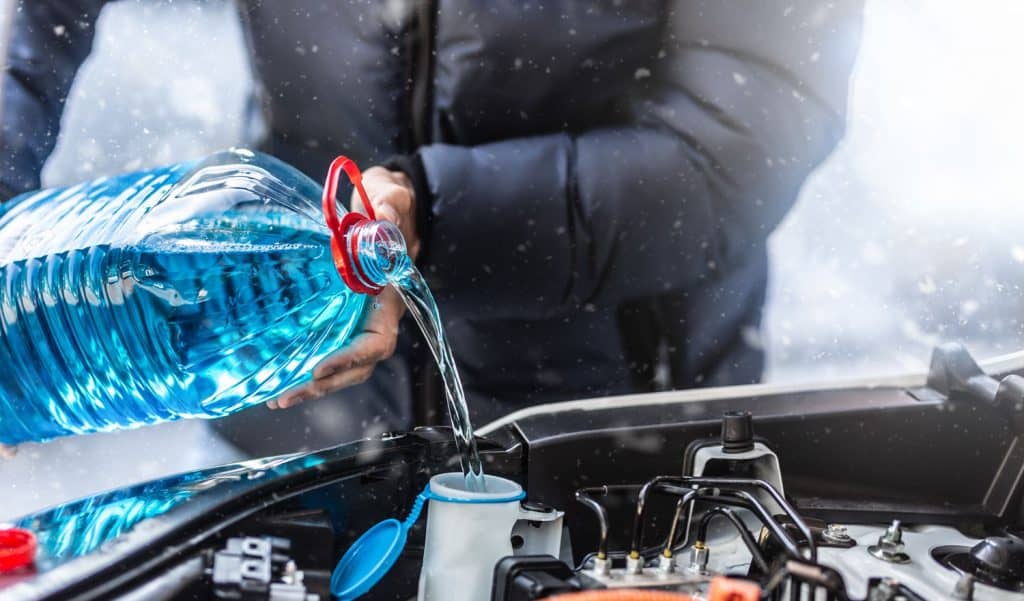
The frequency of antifreeze changes will vary from brand to brand. Here, we'll look at what some of the major manufacturers recommend for the vehicles that they produce.
Ford
Ford recommends that the antifreeze be changed after the first 60,000 miles. After that, changing it at 30,000-mile intervals is the standard. With older model Ford vehicles, look for discoloration and debris in the fluid, as this might indicate the need for a radiator flush before your next antifreeze change.
What antifreeze does Ford use?
Ford uses a specific blend created by Motorcraft for their recommended engine coolant. These are available in a 50/50 pre-mix solution that is ready to be added to your Ford's radiator.
Chevrolet
Chevrolet recommends that most of their vehicles get their first radiator fluid change at 150,000 miles. Chevrolet vehicles, like other makes, should have their fluids inspected carefully to determine if there is any debris in them. Should any be detected, an earlier change of the radiator fluid is recommended.
Honda
Most Honda vehicles will be recommended for an engine coolant change every two years or every 30,000 miles, whichever comes first.
Toyota
This automaker claims to use a lifetime coolant, making changes not necessary for the first 100,000 miles. Toyota also recommends that the coolant never be flushed from the radiator and that new coolant only be added.
What antifreeze does Toyota use?
This automaker recommends Prestone brand radiator fluid. The 50/50 mix that they have created will save time and effort. But if you use a fluid that isn't diluted, be sure to follow all instructions.
General Motors
Replacing the coolant for your GM vehicle is recommended every year according to most forums dedicated to the subject. Certain models, however, can be driven longer without any additional fluid being added.
Daimler
This automaker has quite a range depending upon the model vehicle. A Mercedes should be changed every four to five years or every 40,000 to 50,000 miles. Other models, however, can last up to 100,000 miles before needing their first antifreeze change.
Hyundai
Hyundai recommends that their vehicles have a radiator fluid change after the first 60,000 miles, then every 30,000 miles thereafter.
Subaru
Forums for this automaker recommend that the first radiator fluid change happens after the first 137,000 miles, with the second change occurring 75,000 miles after that. Should you tow this vehicle often, you may find yourself needing to change the radiator fluid more often.
It's important to know that certain model vehicles will require an antifreeze change at different intervals than what we have listed here.
Since certain models will have very specific maintenance schedules, consulting with the owner's manual of the one you own is recommended. In general, though, most forums and professional automotive resources will suggest this fluid be changed every 30,000 miles no matter what vehicle you are driving.
How do I know if my antifreeze is still good?
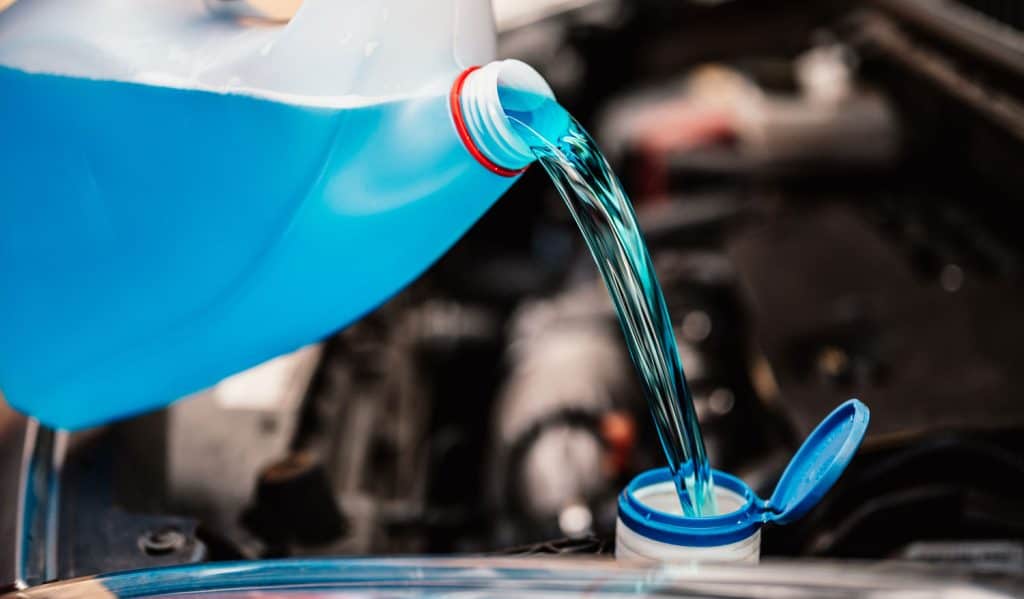
The antifreeze in your vehicle is still good if it is still able to cool your engine.
If it's been a while since your last fluid top off or antifreeze change, monitoring the temperature gauge on your dash will be the first indicator of whether or not your fluid is still working effectively. While a vehicle can overheat for a lot of reasons, low or bad engine coolant is one of them.
Inspecting the fluid itself can help determine if it needs to be changed. The vast majority of radiator fluid is orange or green. You will be able to notice rust particles floating in it. Any rust particles or other debris will indicate that the fluid should be changed as soon as possible.
The age of the fluid itself is also an indicator of when it should be changed out. Keep in mind that undiluted antifreeze should be mixed in a 1:1 ratio with water.
If you just add water alone to top off your radiator from time to time, you are further diluting your fluid. Over time, this will further break down the antifreeze and make it necessary for a total fluid change.
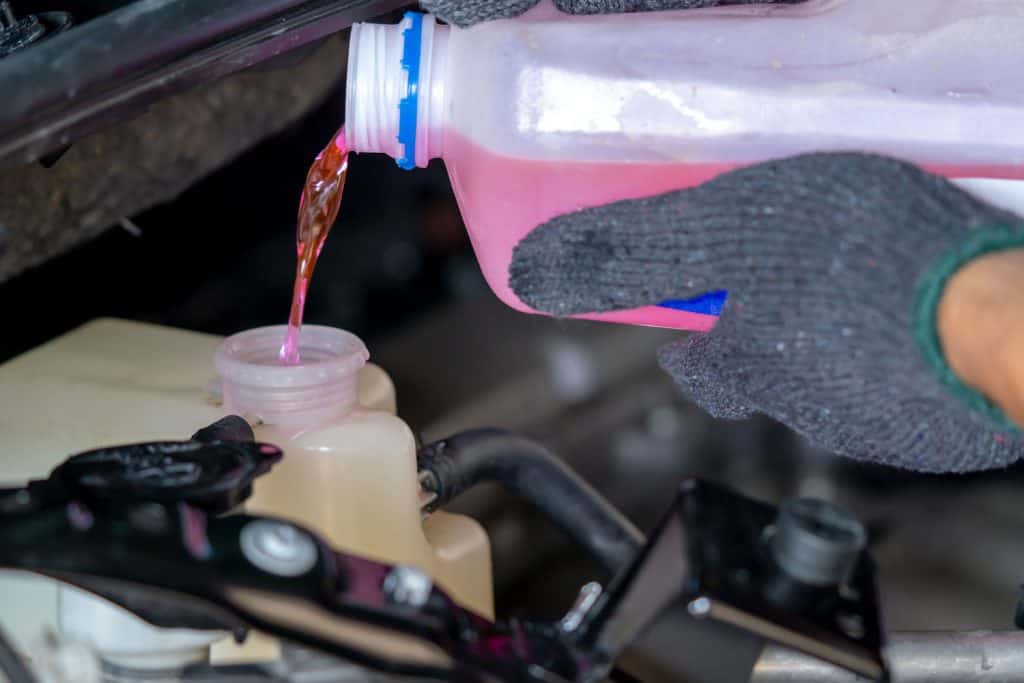
Is coolant better than water?
While water will work in a pinch, you will need an antifreeze and water solution for your engine to be properly cooled.
Mixing the two in a 1:1 ratio works the best. Water alone will freeze at 32 degrees Fahrenheit which will damage the radiator and any lines or hoses this water has settled in. This will include your engine.
The antifreeze has a much lower freezing point than water alone, which is why it is perfect for your vehicle. The ethylene glycol present in the antifreeze keeps it from freezing and keeps your parts safe from damage.
You should know that, while some containers of antifreeze are undiluted, some are not. While diluting it yourself is just as good as one that has been premixed with water, you should be aware of what you are adding to your radiator. If you don't pay attention, you might use a premixed brand and add water to it, which will further dilute your radiator fluid.
How long is unopened antifreeze good for?
If you bought a container of antifreeze several years ago and are wondering if it is still usable, you are not alone. Placing any fluid in your vehicle should be done with caution and regard for the potential damage that expired fluids could cause to your engine or other vital parts.
Fortunately, undiluted antifreeze is good for an indefinite period. This fluid is shelf stable and engineered to keep in storage for years and years. So if you have some in storage, it will still be safe to use in your vehicle.
Even a container of opened antifreeze will continue to be safe for use in your vehicle. As long as it has been stored in its original container, you will still be able to use it. Just make certain that the cap is secured on it so that dust and other debris aren't able to fall in and contaminate it.
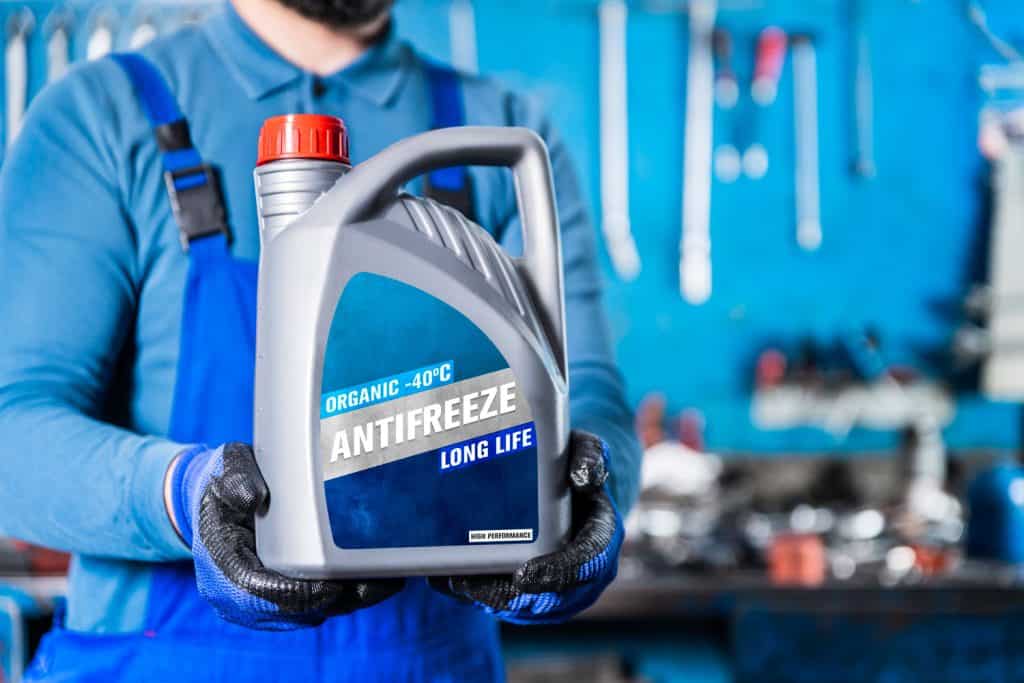
What antifreeze does BMW use?
BMW has its brand of antifreeze, but all models are safe to use most any brand. Just be sure that they are universal coolants that are free of phosphates.
In closing
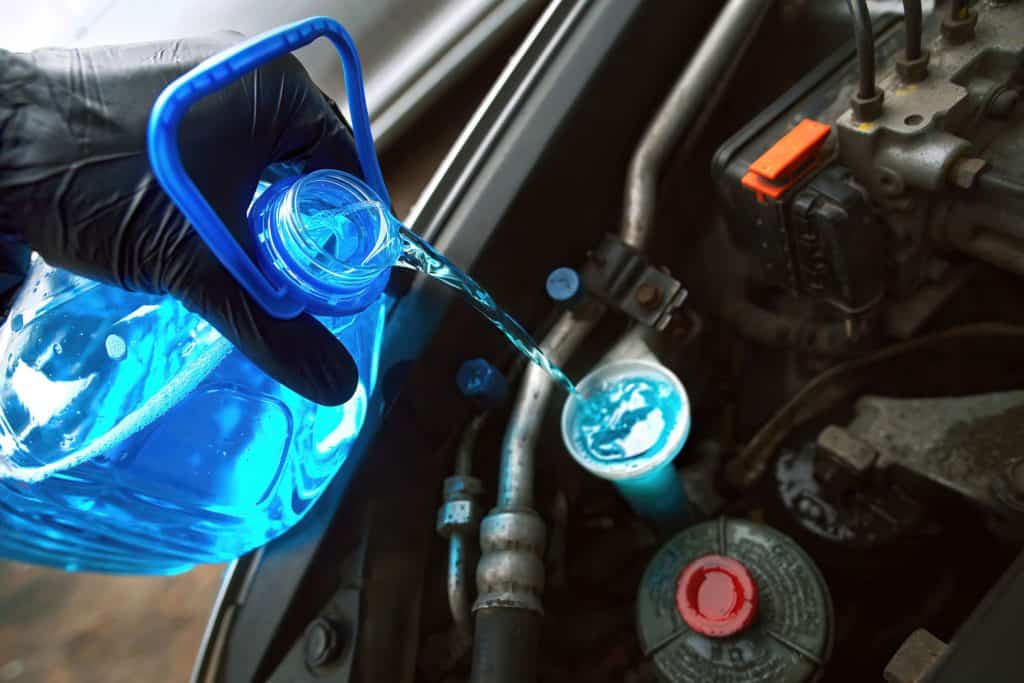
The frequency of engine coolant changes depends on several factors, but if you change it every 30,000 miles you will meet the majority of automakers' recommendations.
No matter what you are driving, it's important to always consult your owner's manual for the exact fluid change intervals. The standard that these manuals offer should be followed for all other types of maintenance as well. Drive safe!
If you found this post on engine coolant to be helpful, be sure to take a look at these others:
Is Engine Coolant Flammable? [Including Safe Handling Tips]
